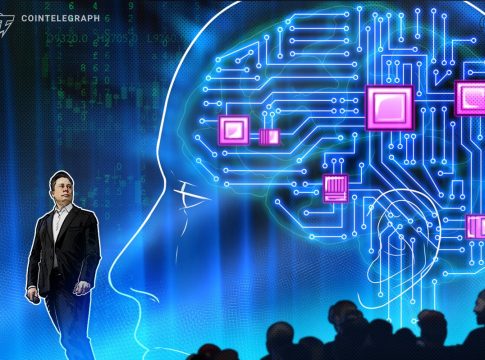Elon Musk’s xAI Plans to Redefine History with Grok AI
In a bold move towards reshaping artificial intelligence, Elon Musk recently announced that his company xAI plans to retrain its AI model, Grok, on a curated knowledge base. Musk claims this new version—dubbed Grok 3.5—will eliminate “garbage” and “uncorrected data” from its training materials and aims to “rewrite the entire corpus of human knowledge.” This effort has sparked significant debate over the implications of such an approach.
A Vision for Advanced AI Reasoning
Musk emphasized on social media that Grok 3.5 will incorporate “advanced reasoning” capabilities. By initially leveraging the AI to revise historical knowledge, Musk hopes to correct misinformation and enhance the model’s overall accuracy. He stated that current AI systems often contain too much erroneous information stemming from unvetted data sources.
This challenge of misinformation isn’t new; AI researchers are keenly aware of the risks posed by biased training sets. Yet Musk’s suggestion to actively rewrite historical narratives raises ethical eyebrows. Critics warn that manipulating historical context to fit a specific ideology could pose significant dangers, particularly in an era where misinformation proliferates online.
The Anti-Woke Stance
For years, Musk has positioned himself against what he perceives as the constraints of political correctness in technology. He has criticized rival AI systems like OpenAI’s ChatGPT, asserting that they harbor biases and omit crucial information that does not align with recognized social narratives. His intent for Grok is clear: create a tool that defies the "woke" narratives he finds detrimental.
In line with this philosophy, Musk has relaxed content moderation policies on the social media platform X (formerly Twitter), resulting in discussions rife with unchecked claims and conspiracy theories. To combat misinformation, he has introduced a "Community Notes" feature, enabling users to fact-check or clarify questionable content directly.
Criticism from Experts
Not everyone is on board with Musk’s ambitious plans. Academics and industry experts have voiced their concerns. Professor Gary Marcus from New York University likened Musk’s strategy to dystopian themes found in George Orwell’s 1984, suggesting that rewriting history to fit a subjective viewpoint is a slippery slope toward narrative control.
Bernardino Sassoli de’ Bianchi, a logic expert at the University of Milan, echoed these sentiments, highlighting that manipulating historical facts to fit one’s beliefs could undermine the foundations of knowledge. As misinformation spreads more rapidly than ever, the ramifications of Musk’s approach could be vast and troubling.
The Call for "Divisive Facts"
In his push for an updated Grok AI, Musk has also invited users to provide what he describes as “divisive facts,” encouraging submissions that are “politically incorrect but nonetheless factually true.” This appeal saw a flood of controversial claims and conspiracy theories, including distortions surrounding the Holocaust and heavily criticized views on vaccines and climate change.
Looking Ahead: Implications for AI and Society
Musk’s vision of Grok introduces significant ethical questions about the manipulation of knowledge and the role AI systems will play in disseminating information. Historically, AI’s evolution has been fraught with challenges regarding bias and transparency. As Musk accelerates into this controversial territory, the tech community and society at large will be closely monitoring the effects of such reassessments of knowledge.
The journey to an "anti-woke" AI may be fraught with complications, and the responsibility of AI developers holds greater weight than ever before. Whether Musk’s strategy will enhance the quality of information or deepen existing divides remains to be seen.

Writes about personal finance, side hustles, gadgets, and tech innovation.
Bio: Priya specializes in making complex financial and tech topics easy to digest, with experience in fintech and consumer reviews.

